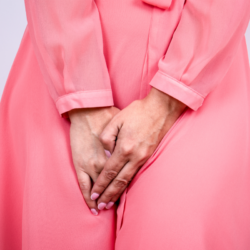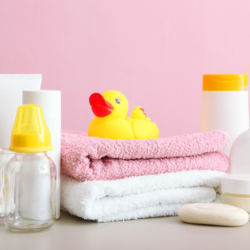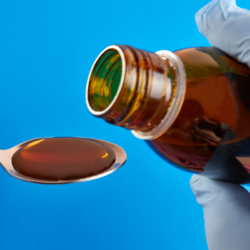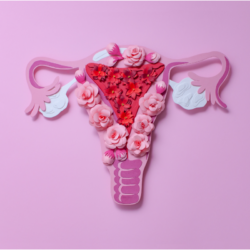Vaginal thrush, also known as vaginal candidiasis, is a common condition in women. It is caused by a proliferation of fungi usually of the Candida genus, in the vagina. The condition can be very uncomfortable, but is generally easy to treat. However, prevention remains the best remedy, and that’s what we’re going to explore in this article. So, how can you prevent vaginal fungal infections? Read on to find out.
Understanding vaginal mycoses
The vagina naturally contains a variety of bacteria and fungi. Under normal conditions, these micro-organisms live in balance, helping to maintain good vaginal health. However, when this balance is disturbed, certain species of fungi, such as Candida, can multiply and cause an infection.
Factors that can upset this balance include the use of antibiotics, poor hygiene tight, non-breathable clothing, a diet rich in sugar, stress, lack of sleep and certain health conditions, such as diabetes or HIV.
Causes of vaginal mycosis
As mentioned above, vaginal mycosis is generally caused by an overgrowth of fungi of the Candida genus. This overgrowth can be triggered by a number of factors, including :
- Use of antibiotics: Antibiotics kill not only the harmful bacteria, but also the beneficial bacteria that help maintain the balance of micro-organisms in the vagina. The loss of these bacteria can allow fungi to multiply.
- Sugar-rich diet: Candida feeds on sugar. A diet rich in sugar can therefore encourage its growth.
- Stress and lack of sleep: These factors can weaken your immune system and make your body more vulnerable to infection.
- Tight, non-breathable clothing: This can create a warm, damp environment that is conducive to the growth of fungi.
- Poor hygiene: Insufficient or excessive hygiene can upset the balance of micro-organisms in the vagina and encourage the growth of fungi.
It’s important to note that all women can develop vaginal mycosis, but some are more susceptible than others. For example, women who are pregnant, have a weakened immune system or have poorly controlled diabetes are more at risk.
How can vaginal fungal infections be prevented?
Taking care of your vaginal health is crucial to preventing vaginal mycoses. Preventive measures include good personal hygiene, a balanced diet, stress management and the use of probiotics.
Prevention through personal hygiene
Good personal hygiene can help maintain the balance of micro-organisms in the vagina and prevent infections. Here are a few tips:
- Avoid douching: Douching can upset the natural balance of micro-organisms in the vagina and encourage the growth of fungi.
- Choose cotton underwear: Cotton is a breathable material that allows air to circulate, which can help prevent the growth of fungus.
- Change your underwear regularly: It’s a good idea to change your underwear every day and after each exercise session to avoid creating a damp environment conducive to fungus growth.
- Use gentle intimate care products some soaps and intimate care products can be too aggressive and upset the vaginal pH balance. Opt for gentle, fragrance-free intimate care products.
The importance of nutrition
A balanced diet can help boost your immune system and prevent infections, including vaginal yeast infections. Here are a few tips:
- Limit your sugar intake: As mentioned above, Candida feeds on sugar. Excessive sugar consumption can encourage the growth of fungi.
- Eat foods rich in probiotics: Probiotics are beneficial bacteria that can help maintain the balance of micro-organisms in the vagina. Foods rich in probiotics include plain yoghurt, sauerkraut, kimchi and kefir.
- Get enough vitamins and minerals: Certain vitamins and minerals, such as vitamin C and zinc, can help boost your immune system.
The effect of stress on vaginal health
Stress and lack of sleep can have a significant impact on vaginal health, particularly by weakening the immune system, which can make the body more vulnerable to infections, including vaginal fungal infections.
Stress and the immune system
Chronic stress can affect your body’s ability to fight infection by weakening your immune system. A weakened immune system can have difficulty keeping potentially harmful organisms, such as the fungi responsible for vaginal mycosis, under control. So it’s important to implement stress management strategies to keep your immune system strong.
Managing stress
Stress management can take many forms, and what works for one person may not work for another. Here are some suggestions:
- Physical activity: Exercise can help reduce stress by releasing endorphins, chemicals in the brain that act as natural painkillers.
- Meditation and relaxation techniques: Meditation, yoga, deep breathing and other relaxation techniques can help reduce stress by slowing the heart rate and lowering blood pressure.
- Self-care: Taking time out for yourself, whether it’s reading a book, taking a hot bath or spending time in nature, can help reduce stress.
Sleep and the immune system
Sleep is essential for the immune system to function properly. During sleep, your body produces more immune cells and proteins called cytokines, which help the immune system fight infection.
Sleep hygiene
Good sleep hygiene can help improve the quality of your sleep. Here are a few tips:
- Maintain a regular sleep schedule: Try to go to bed and get up at the same time each day to regulate your body clock.
- Create a sleep-friendly environment: Keep your bedroom dark, quiet and at a comfortable temperature.
- Avoid screens before bedtime: The blue light emitted by screens can disrupt your production of melatonin, the hormone that regulates sleep.
The role of probiotics
Probiotics play a vital role in maintaining vaginal health. These beneficial bacteria, naturally present in the body, help to maintain the balance of the vaginal microbiome, which can prevent the development of infections such as vaginal mycosis.
Probiotics and the vaginal microbiome
The vagina is home to a multitude of micro-organisms, including bacteria and fungi. These micro-organisms, collectively known as the vaginal microbiome, play a crucial role in vaginal health. Probiotics, particularly lactic acid bacteria, are an important part of this microbiome. They help to maintain an acidic environment in the vagina, which is unfavourable to the growth of many types of fungi and pathogenic bacteria.
Probiotic intake through food and supplements
There are two main ways of consuming probiotics: through food and through food supplements.
- Food: Many fermented foods naturally contain probiotics. These include yoghurt, kefir, sauerkraut, gherkins and kimchi. By incorporating these foods into your diet, you can increase your intake of probiotics.
- Food supplements food supplements containing probiotics are another option for increasing your probiotic intake. It’s important to choose supplements that contain probiotic strains that have been shown to have beneficial effects on vaginal health, such as Lactobacillus rhamnosus and Lactobacillus reuteri.
Probiotics and the prevention of vaginal mycoses
Some research suggests that taking probiotics can help prevent vaginal yeast infections. Probiotics can help restore the balance of the vaginal microbiome after antibiotic treatment, which can upset this balance and make the body more susceptible to infection. In addition, some probiotics can help boost the immune system, which can help the body fight infections.
Symptoms of vaginal mycosis
Vaginal mycosis manifests itself through a number of symptoms, which can vary from woman to woman. It’s important to be aware of these symptoms so that you can react quickly in the event of vaginal mycosis.
Common symptoms
Symptoms of vaginal mycosis can include the following:
- Intense itching: This is generally the most common symptom. The itching can be very uncomfortable and even unbearable in some cases.
- White, lumpy vaginal discharge: Some women may experience a vaginal discharge that looks like cottage cheese. However, it’s important to note that not all women with vaginal mycosis experience discharge.
- Pain or discomfort during sexual intercourse: Some women may experience pain or discomfort during sexual intercourse.
- Redness and swelling of the vulva: In some cases, the vulva may be red and swollen.
- Burning on urination: Some women may experience burning on urination.
When should a doctor be consulted?
It is advisable to consult a doctor if you think you have vaginal mycosis and you have never been diagnosed before. It is also advisable to consult a doctor if symptoms persist despite treatment, or if you experience severe symptoms such as abdominal pain.
Treatments for vaginal mycosis
If you have been diagnosed with vaginal mycosis, don’t worry. There are effective treatments that can help relieve your symptoms.
Antifungals
The most common treatment for vaginal mycosis is antifungal medication. Antifungals come in a variety of forms, including ova, creams and tablets.
- Antifungal ova: Ova are small capsules that you insert into your vagina. They contain a drug that kills fungi.
- Antifungal creams creams are applied to the affected area to relieve symptoms such as itching and burning.
- Antifungal tablets: Tablets are generally used for more serious infections. They are taken orally.
Probiotics
Probiotics are beneficial bacteria that can help maintain the balance of micro-organisms in the vagina. Some doctors recommend using probiotics as a complement to antifungal treatment.
Sources
- American College of Obstetricians and Gynecologists (ACOG)
- Centers for Disease Control and Prevention (CDC)
- Harvard Health Publishing
- National Sleep Foundation
- Journal of Applied Microbiology





